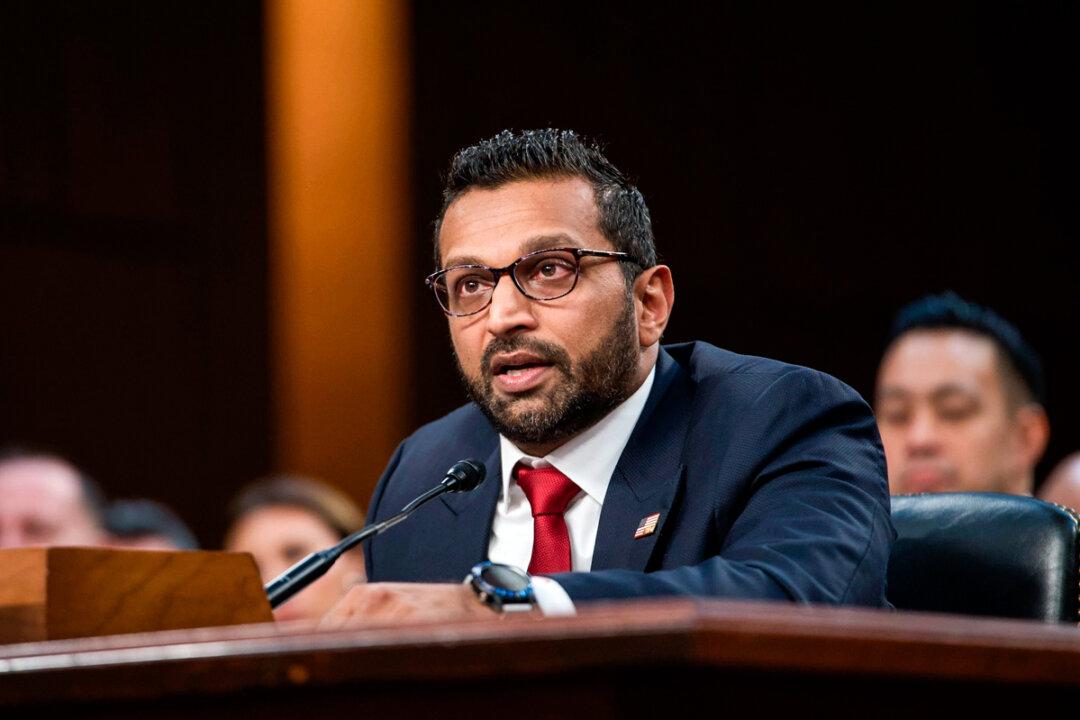A Senate hearing on March 30 underscored the widespread concern about single-use plastics, as experts and lawmakers discussed plastics pollution, plastic recycling, and the potential hazards of outsourcing plastics production to China.
Hota GangaRao, a composites specialist and professor at West Virginia University, and Chelsea Rochman, an ecologist and professor at the University of Toronto, both said single-use plastics may need to become a thing of the past, at least at some point to come.
Yet, they—along with both Democrats and Republicans—stressed the continued need for other plastics, including the polymer composites used in critical infrastructure.
“We should seriously think about eliminating or decreasing the use of one-time, single-use plastics,” said GangaRao in an exchange with Sen. Dan Sullivan (R-Alaska).
The engineer and professor spoke in front of a table of composite-based building materials he has developed over the decades.
“Some of the composites that I’m showing here [are] going to survive in service for 100 years,” he said.
“You cannot make a 300-foot-long windmill blade with any material other than a composite to be efficient,” he added.
Rochman made a similar point.
“I agree we should be getting rid of some of these unnecessary single-use items, but for some of the materials that we put into our infrastructure and that we use–absolutely, we need to be able to make sure that they fit into a circular economy,” she told Sullivan.
GangaRao and Rochman testified during the first hearing of the year for the Senate Committee on Environment & Public Works’ Subcommittee on Chemical Safety, Waste Management, Environmental Justice, and Regulatory Oversight.
Sen. Sheldon Whitehouse (D-R.I.) said that he, too, recognizes the value of composites.
He told the subcommittee’s ranking member, Sen. Markwayne Mullin (R-Okla.), that Republicans have formed a “blockade” against his own bill to promote those materials.
“Perhaps we can work our way through that,” he told Mullin.
Earlier, Mullin had warned that the committee should not seek to “ban one of the most important innovations in the last 100 years, that we know a modern society needs.”
“Innovation, not overregulation, is where we need to focus,” he said.
Subcommittee Chair Jeff Merkley (D-Ore.), discussed the massive scale of plastic pollution and the threat it poses to both the natural environment and human health.
“It’s estimated that each of us consumes about a credit card worth of plastic every week, and I don’t think there’s a person in America who likes the idea of envisioning their children eating a credit card worth of plastic each week, with all the chemicals that are in it,” he said.
Whitehouse suggested that lower income countries could stand to gain “meaningful revenue” from waste plastic collection.
“The waste management failure of the plastics industry is undeniable, conspicuous, and irresponsible,” he added.
Sullivan warned that the United States must not attempt to get rid of plastics entirely.
“A big reason I think it would not be a good idea is that it would drive plastic production overseas, primarily to China–and we know about their environmental record,” he cautioned.
“Outsourcing key industrial capacity to China is just a bad idea.”
“Just to be clear, this hearing is not with the goal of eliminating plastic production, nor of eliminating composites,” Merkley said after Sullivan spoke.
Sullivan asked Rochman about the possibility of additional plastics recycling in his home state of Alaska. Its coastlines, he said, are marred by plastic waste, mostly originating in Africa and Asia rather than Europe or the United States–and shipping it to the Lower 48 for processing is “very expensive.”
“I do think that around the globe, we do need to scale up sustainable recycling programs,” she said.





